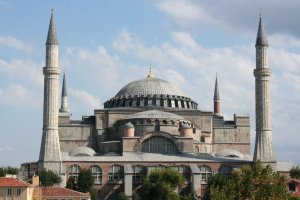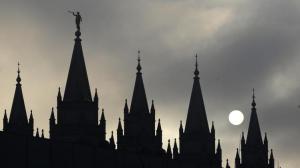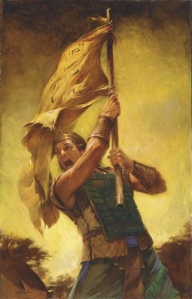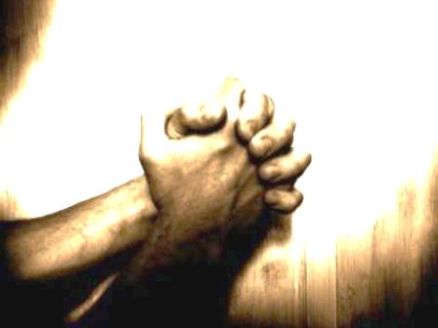I recently read an interesting blog post by Fr. Stephen Freeman, an Orthodox priest, entitled Has Your Bible Become a Quran? The premise of this post – one that I have not seen stated before in such clear terms – is that, at some point in its interaction with Islam in the Middle Ages, Christian tradition and belief became heavily influenced by Islam and actually adopted a number of its precepts, and many Christians today adhere to these Islamic ideas even while reviling Islam and denying any possible kind of connection to it. I agree with much of what Freeman says because I have seen it myself. For instance:
- Obsession with “The Book”: Freeman correctly asserts that Islam, from its earliest days, relied upon the Quran as the kernel or nucleus around which all Muslims united. While Muslims believe that the Quran does not contain all words spoken to Man by God, it is seen as the purest and most important relation of such communications. The concept of the church has never been a part of Islam, and Muslims actually tend to be annoyed by any suggestion that any Islamic group could be termed a church. In Christianity, on the other hand, the concept of the church has always been central to the faith. Jesus Christ clearly established an organization with various levels of authority during His ministry. While written scripture was certainly important to the early Christians, they had many works of scripture that “mainstream” Christianity has long disregarded or even lost completely, and the Bible as we know it did not exist until centuries after the deaths of the Apostles. If the Apostles were the authority of the Christian faith while they were alive and the Bible is the authority now that they are dead, what was the authority for the centuries in which there were neither Apostles nor a Bible? As Freeman explains, the modern tendency to appeal to the Bible as the ultimate authority of Christian doctrine and the unifying element of the Christian world is neither logical nor biblical nor Christian; it can actually be traced, in part, to ideas transferred to Christianity from Islam during the Middle Ages.
- Disavowal of the individual: Islam teaches that humans reach their greatest potential by submitting completely to the will of God. The very words “Islam” and “Muslim” come from a root that means “to submit”. It is actually common for Muslims to proudly refer to themselves as the “slaves of Allah”. A similar attitude can commonly be seen among many Christians today. That is, they ascribe to a brand of Christianity that heavily emphasizes a belief that holiness comes through submission, as the individual, without Christ, is nothing. While the technical veracity of this belief is a matter of debate, the attitude it often conveys is one of self-deprecation that is found nowhere in the Bible. As Freeman says, the Bible does not teach us to submit to Christ, but to unite with Christ. There is a fundamental difference in feeling there. While all are fallen and utterly hopeless without Christ, one of the key distinctions between Christianity and Islam is the Christian belief that all humans are the children of God. We would do well to remember this.
And yet, while Freeman does make many interesting points that I agree with, he does also make a few mistakes:
- Religion without revelation: Freeman correctly asserts that membership in the Church, and not knowledge of or belief in the Bible, is what characterizes one who has united with Christ. He is also correct to point out the fundamental fallacy that is being committed by those who essentially worship the Bible. However, he fails to address the concern that was the cause of this drift toward Bible-worship to begin with. For Muslims, the Quran immediately held the utmost importance to their faith because Muhammad was supposedly the “seal of the prophets”, or the last prophet. If there were not going to be any more prophets to lead God’s people, where could they look for guidance? Who would stand as God’s representative on Earth? If they did not have prophets, they at least had the words of Muhammad in book form. This book would take the place of a prophet. Christianity resisted this drift at first. Since no statement was ever made by the New Testament prophets and apostles that could in any way be construed as a statement that the time of prophets had ended, there remained for some time an assumption that more prophets would come. However, this belief eventually faded, and Christians too came to believe that the words of dead prophets could somehow make living prophets unnecessary. Freeman is right to criticize this shift from prophetic leadership to the veneration of a book. However, he fails to see the fact that the whole reason the people did this was because there were no authoritative representatives of God – prophets – leading them. Freeman correctly asserts that membership in Christ’s church rather than veneration of a book is the defining characteristic of a Christian, but he fails to see that a church without prophetic guidance is not Christ’s church. Those who turned away from the clergy and toward the Bible did so because they saw that the clergy were not prophets, but were giving guidance based on their own philosophies instead of revelation. Not having living prophets, the people sought to at least be led by dead prophets.
- Comparison of the Book of Mormon to the Quran: First and foremost, Freeman’s statement that the Book of Mormon “tells us much about the mind of 19th century Upstate New York, but nothing about God” is patently false. Anyone who has given the Book of Mormon an honest reading knows that this statement is false. I will not bother to go into why: read it and see. But there is something else worth pointing out about his comparison of these two books. As mentioned previously, the Quran became essential to Islam because, with Muhammad being the “seal of the prophets”, something needed to stand in Muhammad’s place as the ultimate arbiter of true doctrine for generations to come. However, the Book of Mormon actually serves the opposite function. Instead of standing as a statement that the heavens are closed and that there is no more prophetic guidance – as the Quran does and as many Christians (incorrectly) claim the Bible does – the primary purpose of the Book of Mormon is to stand as proof that prophetic leadership exists in modern times and that God will continue to commune with Man as He always has until the end of times – so long as Man is willing to listen.
As John Taylor once said, “religion without revelation is a mockery and a farce.” It is true that Christ established a real, functioning Church and that membership in said Church is what defines one as a true follower of Christ. However, when Christ did this, He did not pull out a copy of the KJV and say: “This is the standard English Protestant Bible, and upon this rock will I build my church.” He built His church upon a foundation of prophetic and revelatory authority. Clergymen such as Freeman acknowledge the concept of authority and church membership, but they deny the defining characteristic of said authority. After all, how can a man stand as an authoritative representative of God – leading the Church and dictating what is or is not correct doctrine – except by communing with God as the prophets of the Bible did? Without such revelation, no God-given authority exists. Without God-given authority, any church we may found is a church of Man rather than of God.




